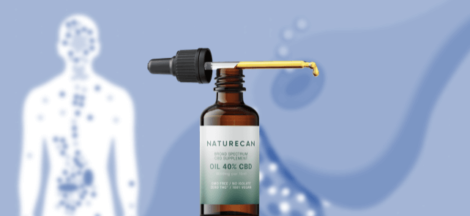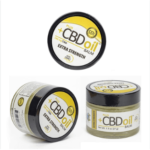CBD, or cannabidiol, has gained significant popularity in recent years for its potential health benefits. As more people seek natural alternatives to traditional medications, CBD has emerged as a promising option.
However, there are concerns and questions surrounding its effects on cognitive function and whether it can make individuals feel ‘spacey.’ This article aims to explore the topic objectively and provide evidence-based information to address this concern.
Before delving into the question of whether CBD makes you feel spacey, it is important to understand what CBD is and how it differs from THC (tetrahydrocannabinol). CBD is a non-psychoactive compound derived from the cannabis plant, whereas THC is responsible for the mind-altering effects commonly associated with marijuana use. While both compounds come from the same plant family, their chemical structures and effects on the body are distinct.
With an increasing number of people using CBD products for various purposes such as pain management, anxiety relief, and improved sleep quality, it’s crucial to examine whether these claims are supported by scientific evidence. Additionally, concerns about feeling ‘spacey’ after consuming CBD need to be addressed objectively.
By exploring research studies and understanding the impact of CBD on cognitive function, we can gain a clearer perspective on this matter. Moreover, considering factors like product quality and seeking professional guidance will further contribute to making informed decisions about using CBD products effectively while addressing any potential side effects that may arise.
Understanding CBD and its Effects
The effects of CBD on an individual’s cognitive state, including the potential sensation of feeling ‘spacey,’ are important to understand in order to fully grasp the impact of this compound.
CBD, or cannabidiol, is a non-intoxicating compound derived from the cannabis plant. While CBD has gained popularity for its potential therapeutic benefits, there is limited research on its direct effects on cognitive function.
Some anecdotal reports suggest that CBD may cause a feeling of spaciness or mental fog, but scientific evidence supporting this claim is lacking. In fact, studies have shown that CBD does not impair cognitive function and may even have neuroprotective properties.
Additionally, some research suggests that CBD may enhance mental clarity and focus by reducing anxiety and improving mood. However, more rigorous clinical trials are needed to fully understand the relationship between CBD and cognitive function.
Differentiating CBD from THC
Distinctive effects can be observed when comparing the psychotropic properties of CBD and THC.
Firstly, CBD (cannabidiol) is non-psychoactive, meaning it does not produce the characteristic ‘high’ associated with THC (tetrahydrocannabinol). This is a crucial distinction that has significant legal implications, as CBD is generally legal in many countries and states where THC remains illegal or heavily regulated.
Secondly, while both compounds have been found to have potential medical applications and are being researched for their therapeutic benefits, they differ in their specific effects. CBD has shown promise in alleviating symptoms related to epilepsy, anxiety disorders, chronic pain, and inflammation. On the other hand, THC has been primarily studied for its analgesic properties and therapeutic use in conditions such as multiple sclerosis and chemotherapy-induced nausea and vomiting.
Finally, research on both compounds is ongoing to fully understand their mechanisms of action and explore further medical applications. It is important to note that any medical use of these substances should be done under professional guidance due to potential side effects and interactions with other medications.
By differentiating CBD from THC based on legal implications and medical applications/research findings, individuals can make informed decisions when considering their usage.
Read also: CBD and Blood Pressure: How Cannabidiol Can Help Lower Your Numbers
Exploring the Potential Health Benefits of CBD
CBD has been found to have potential health benefits in the areas of anxiety and stress relief, pain management, sleep improvement, and inflammation reduction.
Research suggests that CBD may help alleviate symptoms of anxiety and stress by interacting with receptors in the brain that regulate mood and emotions.
Additionally, studies have shown promising results in using CBD for pain management, with some evidence suggesting that it may reduce chronic pain and inflammation.
Furthermore, CBD has been found to enhance the quality of sleep by promoting relaxation and reducing insomnia symptoms.
Overall, these findings highlight the potential therapeutic effects of CBD in various aspects of health and well-being.
Anxiety and Stress Relief
Anxiety and stress relief can be achieved through the use of CBD products. Research has shown that CBD, a non-psychoactive compound found in cannabis plants, interacts with the body’s endocannabinoid system to promote a sense of calm and relaxation.
Here are three ways in which CBD can help with anxiety management and stress reduction:
- Regulation of neurotransmitters: CBD has been found to interact with serotonin receptors in the brain, which play a key role in regulating mood and anxiety levels. By modulating serotonin levels, CBD may help reduce feelings of anxiety and promote a more balanced emotional state.
- Anti-inflammatory properties: Chronic stress and anxiety can lead to inflammation throughout the body, which can contribute to various health issues. CBD has been shown to have anti-inflammatory effects, which may help alleviate symptoms associated with stress-induced inflammation.
- Sleep improvement: Anxiety often goes hand in hand with sleep disturbances, as racing thoughts and worry can make it difficult to fall asleep or stay asleep throughout the night. CBD has been reported by some individuals to promote better sleep patterns by reducing anxiety and promoting relaxation.
While more research is needed to fully understand the mechanisms behind how CBD works for anxiety management and stress reduction, initial studies suggest promising results. It’s important to note that individual responses may vary, so consulting with a healthcare professional is recommended before incorporating CBD into your wellness routine.
Pain Management
One potential benefit of CBD products is their ability to assist with pain management.
Many individuals seek natural remedies and alternative therapies for pain relief, and CBD has gained attention in this regard.
Research suggests that CBD may interact with receptors in the body’s endocannabinoid system, which plays a role in regulating pain perception.
Some studies have shown that CBD can reduce chronic pain, such as neuropathic pain associated with conditions like multiple sclerosis or fibromyalgia.
Additionally, CBD may have anti-inflammatory properties, which could further contribute to its effectiveness in managing pain.
While more research is needed to fully understand the mechanisms and efficacy of CBD for pain management, it presents a potential option for those seeking alternatives to traditional pharmaceuticals.
Sleep Improvement
Sleep improvement can be positively influenced by the use of CBD products. Studies have shown that CBD has potential therapeutic effects on sleep disorders, including insomnia. CBD interacts with the endocannabinoid system in the body, which plays a role in regulating sleep-wake cycles. It has been found to help promote relaxation and reduce anxiety, leading to better sleep quality.
Additionally, CBD may also have analgesic properties, helping individuals with chronic pain or discomfort to achieve a more restful sleep. While further research is still needed to fully understand the mechanisms behind CBD’s impact on sleep, preliminary evidence suggests that it holds promise as an alternative treatment for improving sleep and managing insomnia.
Inflammation Reduction
In addition to its potential benefits for sleep improvement, another area of interest regarding CBD is its potential role in reducing inflammation.
Inflammation is a natural response by the immune system to protect the body from harmful stimuli such as pathogens or tissue damage. However, chronic inflammation can contribute to various health conditions, including autoimmune diseases and chronic pain.
Natural remedies for inflammation have gained popularity due to their potential effectiveness and fewer side effects compared to conventional medications. Herbal supplements, including CBD, have been studied for their anti-inflammatory properties.
Preliminary research suggests that CBD may modulate the immune response and reduce inflammatory markers in certain conditions. However, further studies are needed to fully understand the mechanisms behind these effects and determine the optimal dosage and formulation for different individuals.
While CBD shows promise as a natural remedy for reducing inflammation, it’s important to consult with a healthcare professional before incorporating it into your routine, especially if you have any pre-existing medical conditions or take other medications.
The Science Behind CBD’s Impact on Cognitive Function
This discussion focuses on the science behind CBD’s impact on cognitive function. Specifically, it examines its interaction with the Endocannabinoid System (ECS), neurotransmitter modulation, and neuroprotective properties.
The ECS is a complex network of receptors and molecules that plays a crucial role in regulating various physiological processes, including cognition. CBD has been found to interact with the ECS, potentially influencing cognitive function through this mechanism.
Additionally, CBD has shown potential in modulating neurotransmitters such as serotonin and dopamine. These neurotransmitters are involved in cognitive processes like mood regulation and attention.
Lastly, CBD has been investigated for its neuroprotective properties. These properties may help prevent or mitigate cognitive decline associated with conditions such as Alzheimer’s disease or traumatic brain injury.
Interaction with the Endocannabinoid System
CBD interacts with the endocannabinoid system, which plays a crucial role in regulating various physiological processes in the body.
The endocannabinoid system consists of two main types of receptors: CB1 and CB2. These receptors are found throughout the body, including the brain, immune cells, and peripheral tissues.
When CBD is ingested or applied topically, it can bind to these receptors and modulate their activity. This interaction with the endocannabinoid system helps regulate neurotransmitter release, inflammation, pain perception, and immune responses.
Additionally, CBD can also indirectly influence endocannabinoid signaling by inhibiting the enzyme responsible for breaking down anandamide – a natural cannabinoid produced by our bodies that has mood-enhancing effects.
By enhancing endocannabinoid signaling through its interaction with cannabinoid receptors and inhibition of enzyme breakdown, CBD may have potential therapeutic effects on various conditions such as anxiety disorders, chronic pain, and neurodegenerative diseases.
Neurotransmitter Modulation
In the previous subtopic, we discussed the interaction between CBD and the Endocannabinoid System. Now, let’s delve into another aspect of CBD’s mechanism of action – its modulation of neurotransmitters.
Neurotransmitters are chemical messengers in the brain that play a crucial role in regulating various physiological functions, including mood, appetite, and cognitive function.
Studies have shown that CBD can interact with several neurotransmitter systems in the brain, such as serotonin and dopamine receptors. By modulating these neurotransmitter systems, CBD may potentially influence cognitive function and other aspects of mental health.
However, it is important to note that more research is needed to fully understand how CBD affects neurotransmitter regulation and its impact on cognitive function. Nonetheless, this area of study holds promise for uncovering new therapeutic strategies for conditions related to neurotransmitter dysregulation and cognitive impairment.
Neuroprotective Properties
Neuroprotective properties of CBD have been a subject of interest in scientific research, presenting potential therapeutic benefits for conditions involving cognitive decline and neurodegenerative disorders. CBD has shown promising effects in protecting the brain from damage caused by various neurological disorders. It has been found to have antioxidant and anti-inflammatory properties, which can help reduce oxidative stress and inflammation in the brain, two key factors contributing to neurodegeneration.
Additionally, CBD has been shown to promote the growth and development of new neurons and enhance synaptic plasticity, which are vital for maintaining brain health. Studies have also suggested that CBD may help alleviate symptoms associated with conditions such as Alzheimer’s disease, Parkinson’s disease, multiple sclerosis, and epilepsy.
While further research is needed to fully understand the mechanisms behind these neuroprotective effects, the findings so far highlight the potential therapeutic value of CBD in preserving brain function and mitigating the progression of neurological disorders.
Addressing the Concern of Feeling ‘Spacey’
Surprisingly, some individuals may find themselves experiencing a slight sense of detachment from reality after incorporating CBD into their daily routine. While this feeling is not common and varies from person to person, it has led to misconceptions and concerns among users.
To address these concerns, it is important to explore the reasons behind this potential spacey feeling. Firstly, CBD interacts with the endocannabinoid system in our bodies, which plays a role in regulating mood and cognition. This interaction can lead to changes in neurotransmitter levels, potentially affecting one’s perception of reality.
Additionally, CBD has been found to have anxiolytic properties, reducing anxiety and promoting relaxation. However, for some individuals, this relaxation can be mistaken for feeling spacey or disconnected.
Furthermore, individual sensitivity to CBD varies greatly; what might cause a spacey feeling in one person may not affect another at all.
Lastly, it is crucial to consider other factors that could contribute to this sensation such as dosage amount and the presence of other substances in CBD products.
Overall, while some users may experience a slight sense of detachment from reality when using CBD, it is essential to remember that these effects are subjective and vary greatly among individuals.
Read also: Why no thc cbd oil is Perfect for Those Who Can’t Tolerate Psychoactive Effects
Potential Side Effects of CBD
One important aspect to consider when using CBD is the potential side effects that may arise.
While CBD is generally considered safe and well-tolerated, it is not without its potential risks.
Some users have reported experiencing side effects such as fatigue, dry mouth, changes in appetite or weight, and diarrhea.
Additionally, research suggests that CBD may interact with certain medications and cause adverse reactions.
It is also worth noting that the long-term effects of CBD use are still being studied and understood.
On the other hand, there are potential benefits associated with CBD use, such as alleviating pain, reducing anxiety and depression symptoms, improving sleep quality, and potentially treating epilepsy.
However, it is essential to consult with a healthcare professional before incorporating CBD into your routine to fully understand the potential risks and benefits based on your individual circumstances.
Personal Experiences with CBD and Mental Clarity
Research has shown that individuals who have incorporated CBD into their daily routine have reported improvements in mental clarity, leading to enhanced focus and cognitive function.
User experiences suggest that CBD can promote a sense of calmness and relaxation, which may contribute to increased mental clarity.
Additionally, CBD interacts with receptors in the brain associated with mood regulation, potentially alleviating symptoms of anxiety and stress that can hinder mental clarity.
Furthermore, some users have reported improved sleep quality after using CBD, which can also enhance cognitive function during waking hours.
These personal experiences highlight the potential benefits of CBD in promoting mental clarity and overall well-being.
Factors that may Influence Individual Reactions
Factors such as dosage, individual biochemistry, and the quality of the CBD product may influence an individual’s reaction to CBD in terms of mental clarity and cognitive function.
Individual sensitivity plays a significant role in how someone responds to CBD, as each person’s body chemistry is unique. Some individuals may be more sensitive to the effects of CBD, while others may require higher doses to experience any noticeable changes in mental clarity.
Additionally, adjusting the dosage can also have an impact on how CBD affects cognitive function. Finding the right dosage for optimal results is crucial, as taking too little or too much can potentially lead to undesired effects on mental clarity.
Furthermore, the quality of the CBD product itself can vary greatly and may affect its overall effectiveness. Using high-quality CBD products that are tested for purity and potency can help ensure a more consistent experience with regards to mental clarity and cognitive function.
The Importance of Quality CBD Products
The quality of CBD products plays a crucial role in ensuring consistent and effective outcomes in terms of mental clarity and cognitive function, as the purity and potency of the product can greatly vary.
Quality control is essential to guarantee that CBD products are free from contaminants and have accurate labeling regarding their ingredients and concentration levels.
Consumers should be aware of the importance of purchasing CBD products from reputable sources that adhere to strict quality control measures. By doing so, they can have confidence in the reliability and safety of the products they choose.
Furthermore, consumer awareness is vital in understanding the potential benefits and risks associated with CBD use. Educating oneself about different brands, extraction methods, and third-party testing can help individuals make informed decisions when selecting CBD products that align with their specific needs.
Ultimately, investing in high-quality CBD products not only ensures consistency but also promotes optimal mental clarity and cognitive function for those who incorporate it into their wellness routine.
Tips for Choosing the Right CBD Product
When it comes to choosing the right CBD product, there are a few important factors to consider. One of the key considerations is understanding the different CBD extraction methods.
There are various extraction methods used in the production of CBD products, including CO2 extraction, solvent extraction, and olive oil extraction. Each method has its own advantages and disadvantages in terms of efficiency, purity, and overall quality. It is crucial to select a product that has been extracted using a method that ensures high levels of purity and potency.
Additionally, choosing the right dosage is also essential. The appropriate dosage of CBD can vary depending on individual factors such as body weight, metabolism, and specific health conditions. It is recommended to start with a low dosage and gradually increase it until desired effects are achieved.
Consulting with a healthcare professional or CBD specialist can provide guidance in determining the optimal dosage for an individual’s needs. By considering both the extraction method and proper dosage selection, individuals can make informed choices when selecting CBD products that best suit their preferences and requirements.
Seeking Professional Advice and Guidance
Seeking professional advice and guidance can be advantageous when navigating the complex world of CBD products, as healthcare professionals or CBD specialists possess the expertise necessary to provide objective recommendations based on individual needs and requirements.
These professionals have a deep understanding of the various forms of CBD products available, including their different concentrations, delivery methods, and potential interactions with other medications. They can help individuals determine the right dosage and frequency of use based on their specific health conditions or concerns.
Additionally, seeking professional advice ensures that individuals receive accurate information about potential side effects and any legal considerations related to CBD use. By consulting with experts in the field, individuals can make more informed decisions about which CBD product is most suitable for them, optimizing its benefits while minimizing any potential risks.
Additional Resources and References
Academic resources and references provide individuals with the opportunity to delve deeper into the scientific research surrounding CBD, allowing them to gain a more comprehensive understanding of its potential benefits and limitations.
These additional resources can include peer-reviewed journal articles, scientific studies, books, and reputable websites that provide evidence-based information on CBD.
By consulting these sources, individuals can access a wealth of knowledge about the effects of CBD on various medical conditions, such as anxiety, chronic pain, epilepsy, and sleep disorders.
Furthermore, references can also offer insights into the recommended dosages and potential side effects of CBD consumption.
It is important to note that while academic resources and references are valuable tools for expanding one’s knowledge on CBD, it is always advisable to consult with healthcare professionals before making any decisions regarding its use.
Frequently Asked Questions
Can CBD be used as a substitute for THC?
CBD can be used as a substitute for THC due to its non-psychoactive nature. Research suggests CBD has numerous benefits, such as reducing anxiety and inflammation, without the intoxicating effects of THC.
How long does it take for CBD to take effect?
The onset of CBD effects varies depending on factors such as dosage, method of administration, and individual metabolism. Dosage guidelines for different health conditions can help determine the optimal time for CBD to take effect.
Can CBD help with anxiety and stress?
CBD has shown promise in helping with anxiety and stress. Studies suggest that an appropriate dosage of CBD oil can potentially alleviate symptoms related to these conditions, providing a natural and alternative form of stress relief.
Are there any long-term effects of using CBD?
CBD has shown potential long-term benefits, such as reducing anxiety and improving sleep quality. However, there may be potential risks associated with its use, including liver damage and drug interactions. Further research is needed to fully understand the effects of long-term CBD use.
Is it safe to take CBD while pregnant or breastfeeding?
CBD should be avoided during pregnancy and breastfeeding due to limited research on its effects. It may interfere with fertility, but more studies are needed. Consider consulting a healthcare professional for personalized advice.
Conclusion
In conclusion, CBD is a compound that has gained significant attention for its potential health benefits. It is important to differentiate CBD from THC, as they have distinct effects on the body. While THC can produce psychoactive effects and make individuals feel ‘high,’CBD does not have these properties. Instead, it is known for its potential positive impact on cognitive function.
Numerous studies suggest that CBD may help improve various aspects of cognitive function, such as memory, attention, and mood. However, there is no evidence to support the notion that CBD makes individuals feel ‘spacey’or disconnected. In fact, CBD has been found to have calming and relaxing effects on the body without impairing cognitive abilities.
When considering using CBD products, it is crucial to prioritize quality and choose reputable brands that undergo third-party testing for purity and potency. This ensures that you are getting a reliable product with accurate labeling and minimal risk of contaminants.
To find the right CBD product for your needs, it is advisable to seek professional advice from healthcare practitioners who are knowledgeable about cannabis medicine. They can provide personalized guidance based on your specific health conditions and medication regimen.
Overall, CBD offers potential health benefits without causing a spacey or disconnected feeling. Its impact on cognitive function should be viewed in a positive light as research continues to uncover its therapeutic potential in various areas of human health and well-being. Just like a ray of sunlight piercing through dark clouds after a storm, CBD has the potential to bring relief and wellness into people’s lives.





 Plus Cbd-Full Spectrum Hemp Balm-Extra Strength
Plus Cbd-Full Spectrum Hemp Balm-Extra Strength